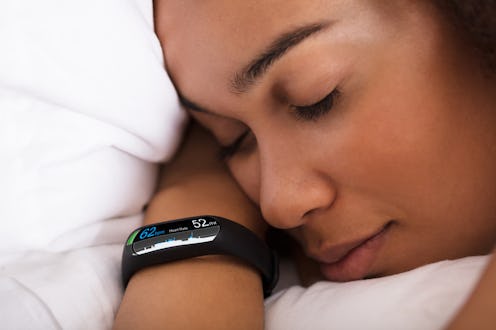Life
3 “Healthy” Things You Do That Can Actually Mess With Your Sleep

The sleep-wake cycle of your body is encoded deep in your cells. Each one of your cells has a circadian rhythm, the pattern of activity that regulates the body's metabolism, and that's what makes your body feel awake or sleepy at particular times of day. Science is still uncovering new science about circadian rhythms; we know, for instance, that things like jet lag and shift work disrupt your body's circadian rhythm, because you're getting contradictory and confusing signals about when to sleep. Those are behaviors that are usually seen as unhealthy, though sometimes unavoidable, but it turns out that even some so-called healthy behaviors can affect your sleep by messing with your body's internal clock.
Disrupted circadian rhythms can do quite a lot of damage to your health as a whole, not just your sleep. Studies have linked them to higher risks of anxiety disorders, for instance — and in 2018, scientists found that a gene that regulates circadian rhythms in women can have a strong effect on some breast cancers, which might mean that night shifts and other things that mess with your body clock could increase breast cancer risk. Your sleep-wake cycle is important to more than just your rest — though when you're awake at 2 a.m. it likely seems like the most important thing in the world. Here are three "healthy" activities you probably do that are sneakily messing with your body's clock.
1Being 'Good' All Week And Sleeping In On The Weekend
Many of us feel that if we "behave" all week and get up and go to sleep at the same time, we've earned some disruption at the weekend: late night parties, evening gym classes, long, luxuries lie-ins. Unfortunately, your body's circadian rhythm thrives with regularity, even on weekends, and even these relaxing habits may be making people more sleepy and circadian rhythms more disordered.
Norwegian and Swedish sleep researchers noted in 2016 that sleep rhythms need to be maintained throughout the week to keep you at your healthiest. Susanna Jernelöv of the Karolinska Institute said, "When you sleep in later, it’s like giving yourself a bit of jet-lag and jet-lag makes you less bright and perky." They were echoing findings from Australian scientists in 2008, but the idea that sleeping in on the weekends is good self-care remains pretty widespread. "Catching up" on sleep may not actually be a thing.
2Exercising Too Late In The Day — Or Too Early
Regular exercise helps to regulate your metabolism and set your circadian rhythms, but it turns out that the time of day at which you work up a sweat can have effects on your levels of wakefulness. Unsurprisingly, working out late at night isn't recommended by experts, as it tends to spike wakeful hormones and will keep you up later. However, early-morning workouts may not be the best option either.
Pulling yourself out of bed to hit that pre-work yoga class might not be the best idea, according to the most recent science. Science indicates that people perform best at exercise in the afternoons, and a 2012 study using mice found that exercise after noon is better at regulating circadian rhythms than early-morning workouts. The scientists behind the study, reported The New York Times, "had expected to see the greatest effects from morning exercise, a popular workout time for many athletes" — so the findings were "a great surprise."
3Rearranging Meals Around Your Exercise Regime
Which is more important, squeezing in an exercise class every day or keeping to a regular meal timetable? Most of us would likely say the former, but studies on circadian rhythms say that actually the latter might be just as important as regular exercise. A 2017 study on metabolism, feeding and exercise in mice found that mice who kept to a regular diet schedule slept normally at night, while mice who were fed irregularly were active when they were meant to be sleeping.
This isn't just true in mice, either; a small study in 2017 also found that irregular eating times in a group of young men threw out the signaling of their internal clocks. Meal timings, the scientists behind the study wrote, "play a role in synchronizing peripheral circadian rhythms in humans and may have particular relevance for patients with circadian rhythm disorders, shift workers, and transmeridian travelers."
The science is pretty clear: lie-ins, very early or late workouts and fitting in meals around exercise classes aren't going to help your body's internal clock, no matter how "healthy" they seem. And that can have serious ongoing effects for your sleep — and your health in general. Your best bet? Stick to a schedule, even on weekends. Your body will thank you.